Effective SEO Strategies for Small Businesses in 2025


Small businesses ready to make their mark in 2025 have one tool they can't ignore: search engine visibility. Surprising, right? Even though about 30 percent more website traffic is up for grabs with smart SEO tactics, most local companies still depend on old strategies that barely move the needle. The real edge comes from new methods that use data, fresh content, and relentless adaptation—exactly the kind of moves that turn overlooked shops into local stars.
Table of Contents
- Building A Strong SEO Foundation
- Optimizing Local Search For Small Businesses
- Content Marketing Tactics That Work
- Tracking Results And Adjusting Strategies
Quick Summary
| Takeaway | Explanation |
|---|---|
| Build a Strong SEO Foundation | A robust SEO framework is essential, focusing on technical elements like site speed, mobile compatibility, and clean URL structures to enhance user experience and search visibility. |
| Optimize for Local Search | Mastering your Google Business Profile (GBP) and implementing strategies for voice search and hyperlocal content can significantly improve local search rankings and visibility. |
| Leverage Content Marketing | Content marketing should prioritize audience-centric storytelling, data-driven topic selection, and multimedia integration to engage users effectively and improve search engine rankings. |
| Implement Comprehensive Analytics | Regularly track performance metrics such as organic traffic, keyword rankings, and conversion rates to inform data-driven decisions and strategy adjustments. |
| Adopt Adaptive Strategy Refinement | Develop mechanisms for ongoing strategy refinement based on performance data, competitor analysis, and algorithm updates to maintain an effective SEO approach. |
Building a Strong SEO Foundation
Creating a robust SEO foundation is the cornerstone of digital success for small businesses in 2025. Your website's performance depends on strategic groundwork that goes beyond surface-level optimizations. Successful SEO requires a comprehensive approach that combines technical precision, content quality, and strategic planning.
Technical Infrastructure and Website Optimization
The technical backbone of your SEO strategy determines how search engines perceive and rank your website. Website speed, mobile responsiveness, and structured data are critical components that directly impact search visibility. Research from ResearchGate suggests that technical SEO enhancements can lead to significant improvements in digital performance metrics for small businesses.
Key technical elements include:
- Site Speed: Optimize loading times to reduce bounce rates
- Mobile Compatibility: Ensure responsive design across all devices
- Secure Connections: Implement HTTPS protocols
- Clean URL Structures: Create logical, readable website URLs
These technical foundations signal to search engines that your website provides a high-quality user experience. Businesses that invest in technical optimization can see up to a 30% increase in website traffic and 20% to 40% improvement in click-through rates.

Strategic Content and Keyword Alignment
Content remains the primary driver of SEO success. Your website needs a strategic approach that balances informative, valuable content with precise keyword targeting. According to digital marketing experts, integrating SEO with digital marketing strategies can enhance operational efficiency by up to 15% and increase revenue growth by 25%.

Effective content strategies involve:
- Comprehensive Keyword Research: Identify relevant search terms
- High-Quality, Original Content: Create valuable information for users
- Regular Content Updates: Maintain fresh and current website materials
- Strategic Internal Linking: Connect related content across your website
The goal is not just to rank for keywords but to provide genuine value that attracts and retains audience attention. Search engines increasingly prioritize content that demonstrates expertise, authoritativeness, and trustworthiness.
Continuous Monitoring and Adaptation
SEO is not a one-time task but an ongoing process of monitoring, analyzing, and adapting. Small businesses must develop a dynamic approach that responds to changing search algorithms and user behaviors. Regularly audit your website's performance using tools that provide insights into traffic, user engagement, and search rankings.
Key monitoring practices include:
- Performance Analytics: Track website metrics consistently
- Competitor Analysis: Understand your digital marketplace
- Algorithm Update Awareness: Stay informed about search engine changes
- Periodic SEO Audits: Identify and address potential optimization opportunities
By building a strong SEO foundation rooted in technical excellence, strategic content, and continuous improvement, small businesses can create a powerful digital presence that attracts, engages, and converts target audiences.
Here is a summary table listing the key technical and content strategies for building a strong SEO foundation. This can help readers quickly identify what to focus on to enhance search visibility in 2025.
| Area | Key Strategy | Notable Impact |
|---|---|---|
| Technical Infrastructure | Site Speed | 30% increase in website traffic |
| Technical Infrastructure | Mobile Compatibility | Improves user experience and visibility |
| Technical Infrastructure | Secure Connections (HTTPS) | Builds trust and SEO credibility |
| Technical Infrastructure | Clean URL Structures | Aids indexing and user navigation |
| Content & Keywords | Comprehensive Keyword Research | Targets relevant audience |
| Content & Keywords | High-Quality, Original Content | Demonstrates expertise, builds authority |
| Content & Keywords | Regular Content Updates | Keeps site fresh and current |
| Content & Keywords | Strategic Internal Linking | Improves engagement and rankings |
Optimizing Local Search for Small Businesses
Local search optimization represents a critical digital strategy for small businesses seeking to attract nearby customers and establish a strong regional online presence. As digital landscapes evolve, mastering local search requires a sophisticated approach that combines technological awareness, strategic content, and precise digital positioning.
Google Business Profile Mastery
Your Google Business Profile (GBP) serves as the digital storefront for local search visibility. Local SEO experts at LocalMighty emphasize that a comprehensive GBP optimization strategy can significantly enhance your business's discoverability. This means meticulously crafting your business profile with accurate information, high-quality images, and comprehensive service descriptions.
Key optimization strategies include:
- Precise Business Information: Ensure name, address, phone number match exactly across all platforms
- Category Accuracy: Select most relevant business categories
- Visual Storytelling: Upload professional, current business photos
- Regular Updates: Post weekly content and respond to customer reviews
Businesses that invest time in detailed GBP management can see substantial improvements in local search rankings and customer engagement.
Voice Search and Local Discovery
The rise of voice-activated search technologies transforms how potential customers find local businesses. Keyword Kings research predicts nearly 8 billion voice assistants will be in use globally by 2025, making voice search optimization crucial for small business visibility.
To optimize for voice search, focus on:
- Conversational Keywords: Use natural language phrases
- Local Question Optimization: Answer common local search queries
- Mobile-Friendly Content: Ensure quick, concise information delivery
- Schema Markup: Implement structured data for enhanced search understanding
Voice search optimization requires understanding how people naturally speak when searching for local services, moving beyond traditional keyword strategies.
Hyperlocal Content and Community Engagement
Creating hyperlocal content that resonates with your immediate community can dramatically improve local search performance. This approach goes beyond generic information, providing genuine value and establishing your business as a local authority.
Effective hyperlocal strategies involve:
- Local Event Coverage: Write about neighborhood happenings
- Community Story Sharing: Highlight local partnerships and customer experiences
- Location-Specific Landing Pages: Create targeted content for different service areas
- Neighborhood-Focused Blogging: Develop content that speaks directly to local interests
By demonstrating deep community understanding and connection, small businesses can signal relevance to both search algorithms and potential customers.
Local search optimization is not a static strategy but a dynamic, ongoing process of understanding technological trends, community needs, and digital best practices. Small businesses that approach local SEO with creativity, precision, and genuine local insight will successfully navigate the complex digital marketplace of 2025.
The following table summarizes key local SEO tactics for small businesses, organizing action items for Google Business Profile, voice search, and hyperlocal content optimization, along with their benefits.
| Local SEO Tactic | Action Steps | Main Benefit |
|---|---|---|
| Google Business Profile (GBP) | Accurate info, category, photos, regular updates | Increases local search rankings & engagement |
| Voice Search Optimization | Conversational keywords, answer FAQs, schema markup | Reaches voice search users, boosts visibility |
| Hyperlocal Content | Local event blogs, community stories, area pages | Builds authority, attracts local customers |
Content Marketing Tactics That Work
Content marketing represents a powerful strategy for small businesses to establish digital authority, engage target audiences, and improve search engine visibility. As digital landscapes become increasingly competitive, developing sophisticated content approaches that blend creativity, strategic targeting, and data-driven insights becomes crucial.
Strategic Content Development
Research from ResearchGate indicates that effective SEO practices can result in up to a 30% increase in website traffic and improve click-through rates by 20% to 40% for small businesses. Achieving these results requires a nuanced approach to content creation that goes beyond traditional keyword stuffing.Key strategic content development principles include:
- Audience-Centric Storytelling: Create narratives that directly address customer pain points
- Data-Driven Topic Selection: Use analytics to identify high-performing content themes
- Comprehensive Research: Ground content in authoritative sources and current trends
- Multimedia Integration: Incorporate diverse content formats like videos, infographics, and interactive elements
Advanced Keyword and AI Content Optimization
Advanced research from ArXiv reveals that integrating prompt engineering and multi-objective fine-tuning in content creation can increase click-through rates by 12.5% and conversion rates by 8.3%. This demonstrates the growing importance of sophisticated content optimization techniques.Effective optimization strategies involve:
- Semantic Keyword Mapping: Connect related concepts beyond exact match keywords
- Natural Language Processing: Utilize AI tools to enhance content readability and relevance
- Contextual Content Structuring: Create comprehensive content that answers user queries comprehensively
- Adaptive Content Personalization: Develop flexible content frameworks that can be customized for different audience segments
Performance Measurement and Iterative Improvement
Successful content marketing is not a static process but a dynamic approach of continuous measurement and refinement. A meta-analysis of SEO studies found significant correlations between strategic content practices and improved search rankings, with high effect sizes indicating substantial impact.
Key performance measurement tactics include:
- Comprehensive Analytics Tracking: Monitor engagement metrics beyond basic pageviews
- Competitive Content Benchmarking: Regularly assess content performance against industry standards
- User Feedback Integration: Incorporate audience insights into content refinement
- Periodic Content Audits: Systematically update and optimize existing content
By embracing a holistic, data-informed approach to content marketing, small businesses can transform their digital communication strategies. The goal is not just to create content but to develop meaningful, engaging narratives that resonate with target audiences while simultaneously satisfying search engine algorithms.
Content marketing in 2025 demands creativity, technical sophistication, and a deep understanding of audience needs. Businesses that can successfully blend these elements will stand out in an increasingly crowded digital marketplace.
Tracking Results and Adjusting Strategies
Effective SEO is not a set-it-and-forget-it approach but a dynamic process of continuous monitoring, analysis, and strategic refinement. Small businesses must develop robust tracking mechanisms that provide actionable insights into their digital performance, enabling rapid and intelligent strategy adjustments.
Comprehensive Performance Analytics
Search Engine Land research highlights the critical importance of systematic performance tracking for small businesses. Implementing a structured approach to SEO reporting allows businesses to understand their digital landscape with precision and make data-driven decisions.Key performance tracking elements include:
- Organic Traffic Analysis: Monitor visitor volume, sources, and engagement patterns
- Keyword Ranking Tracking: Observe position changes for target search terms
- Conversion Rate Monitoring: Assess how website traffic translates into business outcomes
- User Behavior Metrics: Examine bounce rates, time on page, and navigation patterns
By establishing a comprehensive analytics framework, businesses can transform raw data into strategic intelligence.
Competitive Benchmarking and Strategic Insights
Web Design Digital research emphasizes the significance of competitive analysis in refining SEO strategies. Understanding your digital competitors provides crucial context for your performance and reveals potential optimization opportunities.Effective competitive benchmarking strategies involve:
- Keyword Competitor Analysis: Identify gaps and opportunities in search visibility
- Backlink Profile Evaluation: Understand competitive link-building strategies
- Content Performance Comparison: Assess how your content competes in the market
- Technical SEO Benchmarking: Compare website performance and technical optimization
This approach transforms competitive intelligence into actionable strategic insights.
Adaptive Strategy Refinement
Successful SEO requires a proactive and flexible approach to strategy development. Businesses must create mechanisms for rapid strategy adjustment based on performance data, emerging trends, and algorithmic changes.
Key adaptive strategy principles include:
- Quarterly Strategy Reviews: Systematically assess and update SEO approaches
- Algorithmic Trend Monitoring: Stay informed about search engine updates
- Continuous Learning: Invest in ongoing SEO education and skill development
- Agile Implementation: Develop frameworks for quick strategy pivots
The most successful small businesses view SEO not as a static set of tactics but as a dynamic, evolving digital strategy. By combining rigorous performance tracking, competitive insights, and adaptive thinking, businesses can create resilient SEO approaches that deliver consistent results.
In the rapidly changing digital landscape of 2025, the ability to monitor, understand, and swiftly respond to performance data will separate thriving businesses from those struggling to maintain online visibility. Effective SEO is about creating a responsive, intelligent system that continuously learns and improves.
Frequently Asked Questions
What are the essential SEO strategies for small businesses in 2025?
Small businesses should focus on building a strong SEO foundation, optimizing for local search, leveraging effective content marketing tactics, and implementing comprehensive performance analytics.
How can my small business improve local search visibility?
To enhance local search visibility, master your Google Business Profile, utilize voice search optimization, and create hyperlocal content that engages your local community.
Why is content marketing important for small business SEO?
Content marketing is vital because it helps establish digital authority, engages target audiences, and improves search engine rankings through high-quality, audience-centric narratives.
How often should I analyze my SEO performance?
Regularly analyze your SEO performance at least quarterly, focusing on key metrics such as organic traffic, keyword rankings, and conversion rates to inform strategy adjustments.
Ready to Overcome SEO Overwhelm and Outrank Local Competitors?
Your business deserves to stand out in 2025. But the challenges outlined in this article—complex SEO foundations, the fast pace of algorithm updates, and the never-ending pressure to keep your content fresh—leave many small business owners feeling stretched thin and behind the competition. If you are struggling to convert SEO know-how into tangible growth, you are not alone. Imagine having a custom-built solution that handles continuous keyword alignment, hyperlocal content, and performance tracking—all without requiring an in-house team.
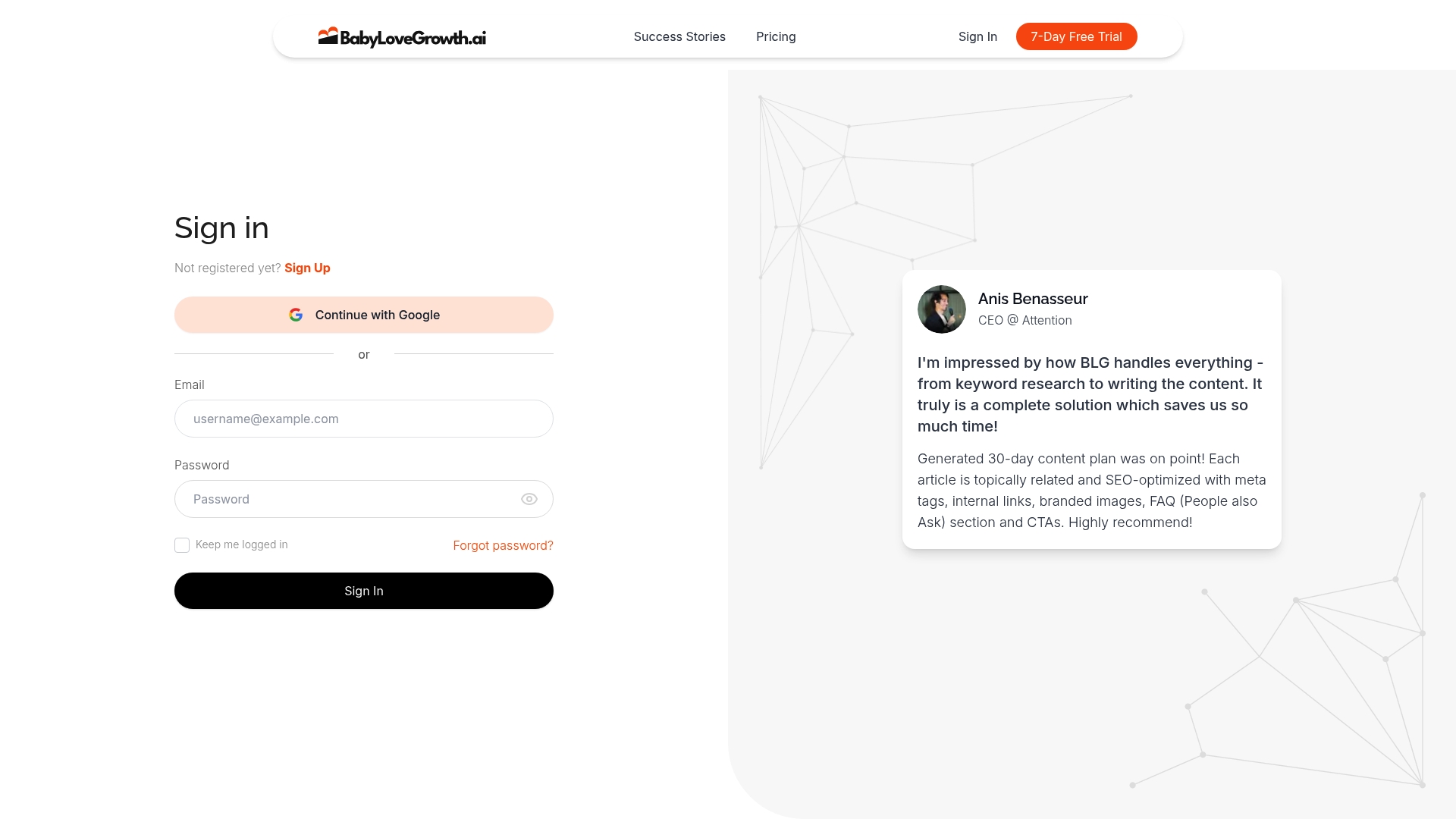
Take the next step to higher rankings and more visibility today. Explore BabyLoveGrowth.ai, where automated business analysis, custom 30-day content plans, and AI-powered article creation help you stay ahead every month. Start optimizing your strategy now, engage your audience, and leave your SEO worries behind. Get started now at BabyLoveGrowth.ai to put your small business at the top of local search results before your competitors do.
Recommended
- SEO Importance for Businesses in 2025: Key Benefits and Strategies
- SEO Trends for 2024: Key Shifts Every Marketer Should Know
- SEO Strategies for Bloggers: Proven Tactics for 2025 Success
- The Importance of Organic Traffic for Business Growth in 2025
- Winning SEO Outreach Strategies for 2025: Guide for SMBs
- Top Cost Effective SEO Strategies for 2025: Boost Growth Online
Smart SEO,
Faster Growth!
Most Read Articles
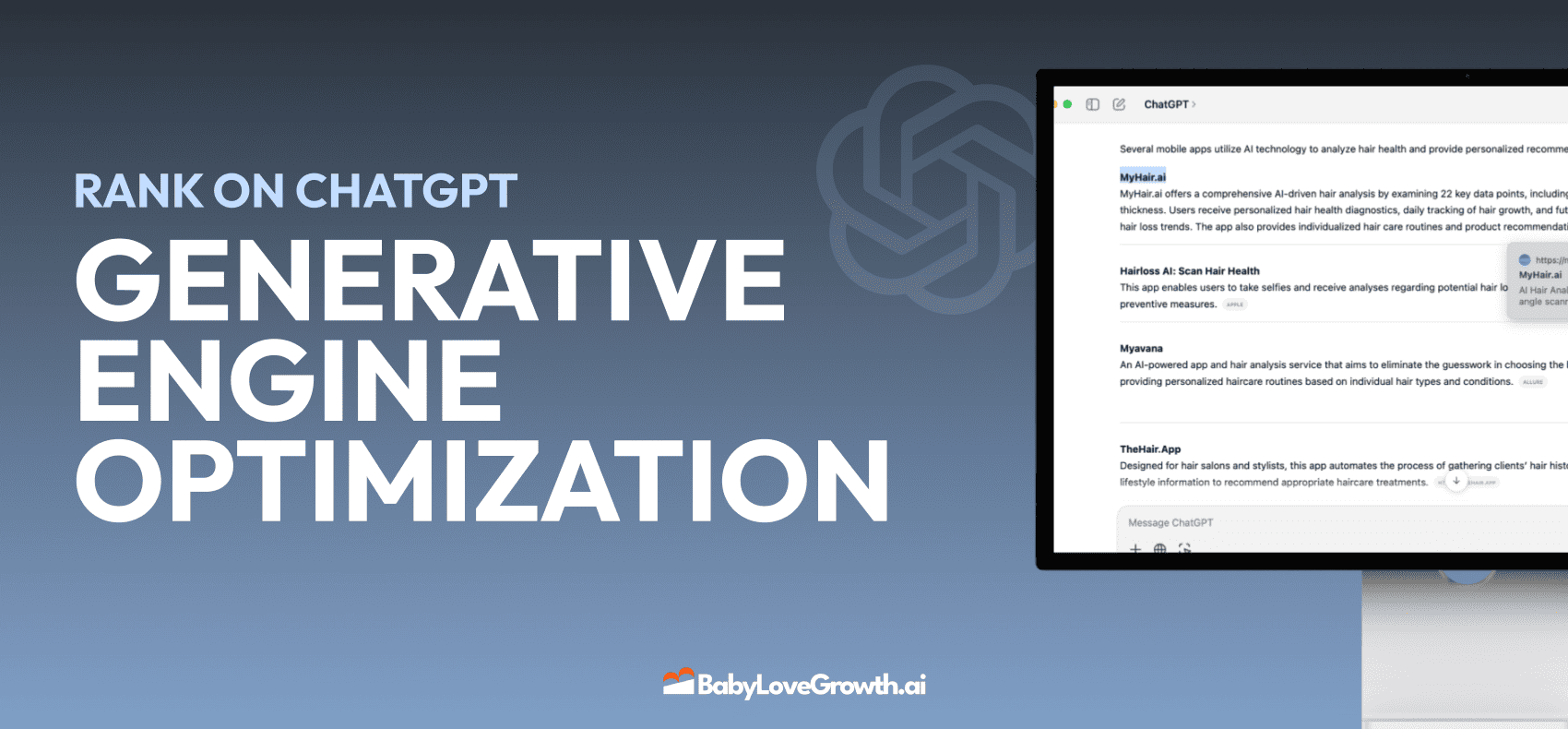
Generative Engine Optimization (GEO)
Learn how Generative Engine Optimization (GEO) helps your content rank in AI search engines like ChatGPT and Google AI. This comprehensive guide explains the differences between SEO and GEO, why it matters for your business, and practical steps to implement GEO strategies for better visibility in AI-generated responses.
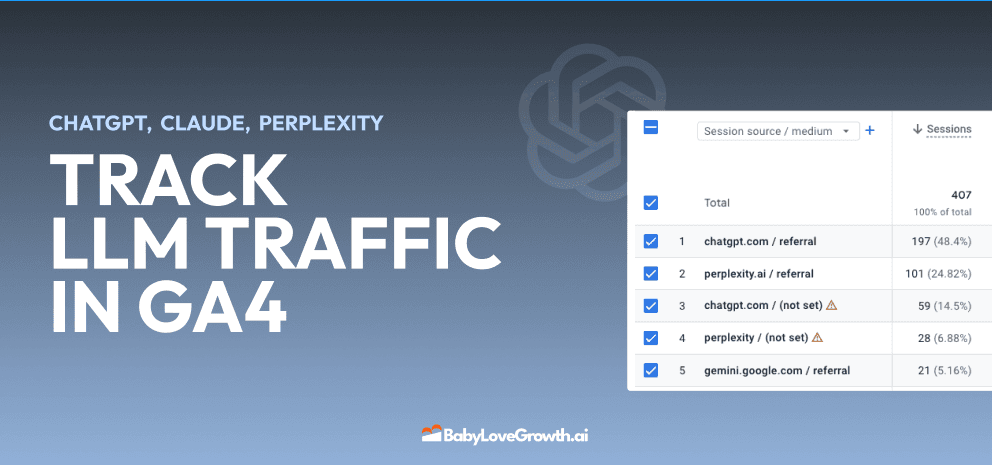
Track LLM Traffic in Google Analytics 4 (GA4)
Learn how to track and analyze traffic from AI sources like ChatGPT, Claude, Perplexity, and Google Gemini in Google Analytics 4. This step-by-step guide shows you how to set up custom filters to monitor AI-driven traffic and make data-driven decisions for your content strategy.
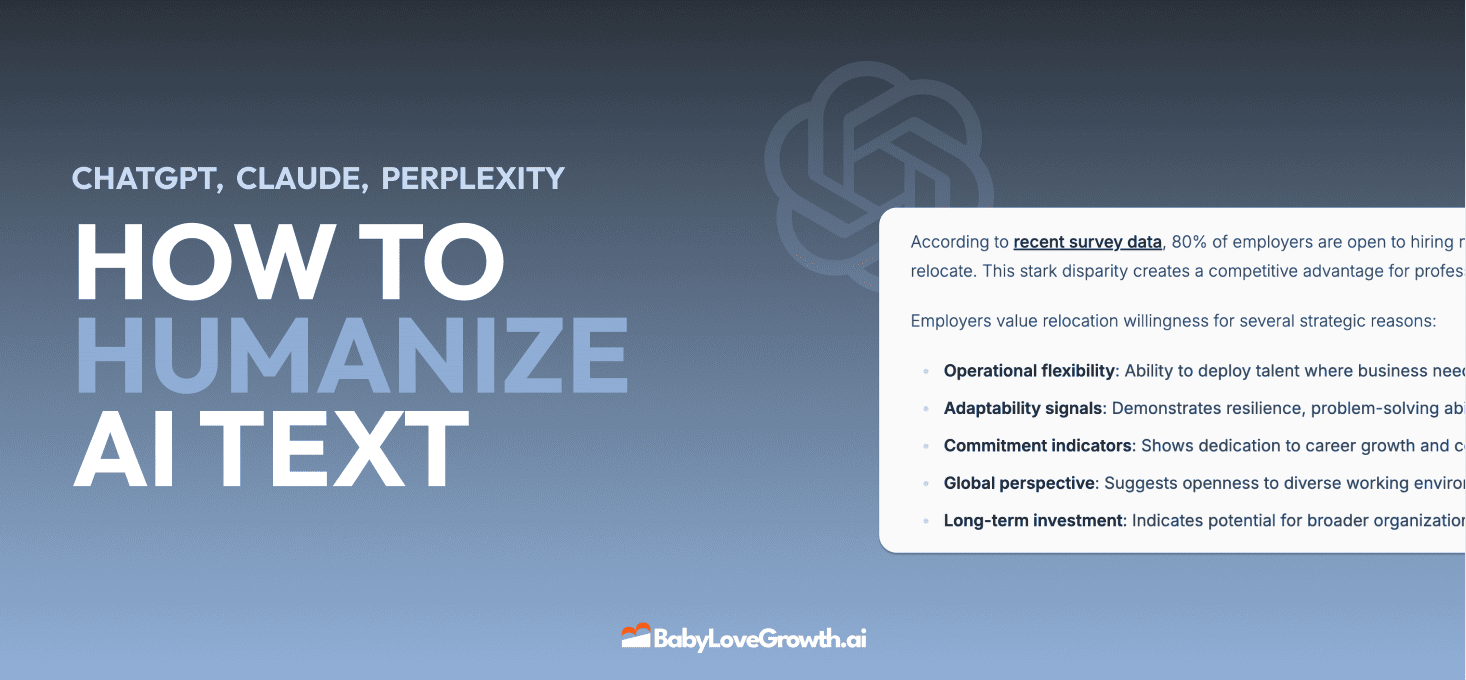
How to Humanize AI Text with Instructions
Learn practical techniques to make AI-generated content sound more natural and human. This guide covers active voice, direct addressing, concise writing, and other proven strategies to transform robotic text into engaging content.
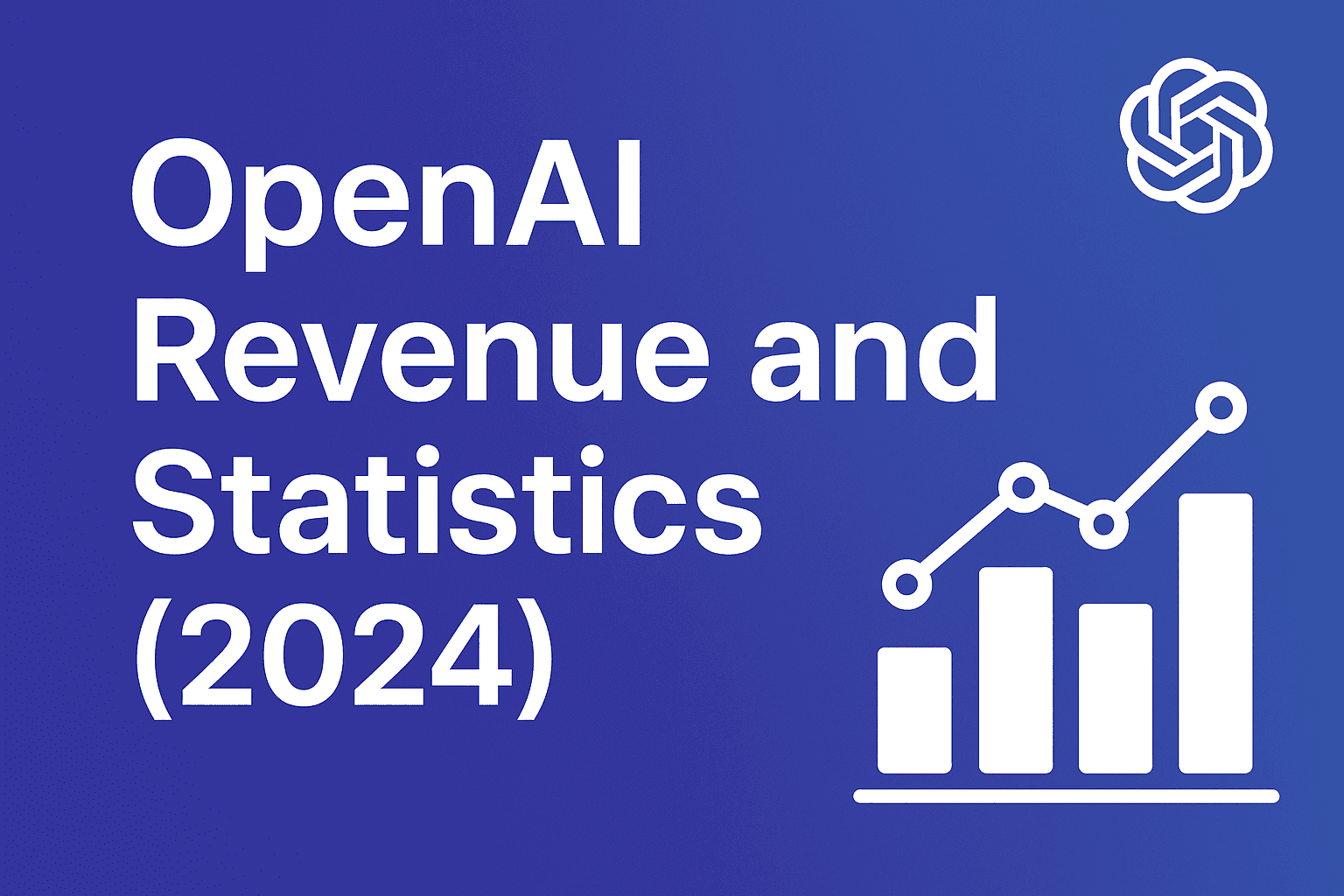
Open AI Revenue and Statistics (2024)
Comprehensive analysis of OpenAI financial performance, user engagement, and market position in 2023. Discover key statistics including $20B valuation, $1B projected revenue, and 100M+ monthly active users.